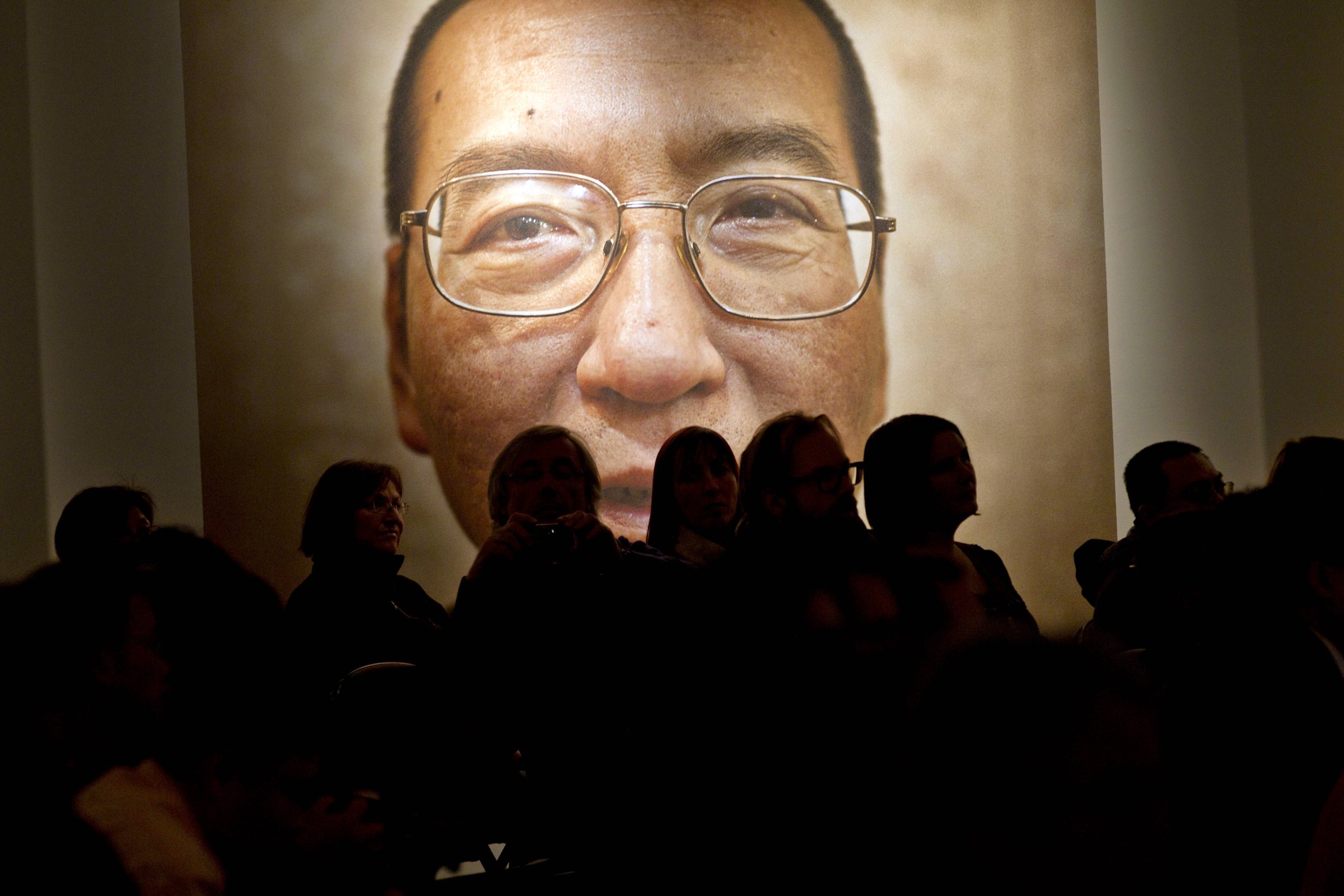
President Obama has returned from the final visit to Asia of his administration—a trip in which protocol breaches grabbed the headlines. In an unprecedented display of bad manners, when Mr. Obama arrived in Hangzhou for the G20 meeting, the Chinese authorities did not provide the standard red-carpeted staircase so that he could depart Air Force One in a dignified fashion. They then employed strong-arm tactics to try to control the movements of the American press all the while quarreling with senior members of the President’s delegation. Undeterred, Mr. Obama announced that in coordination with Chinese President Xi Jinping, he intends to use executive fiat to try to shackle the United States to the wide-ranging United Nations Framework Convention on Climate Change—without submitting it to the Senate for ratification, instead choosing to impinge American sovereignty.
One thing President Obama did not find time to do on his trip to China, however, was meet with Liu Xiaobo, the eminent author, academic and political activist who succeeded Mr. Obama as the Nobel Peace Laureate in 2010, and who happens to be the only living Peace Prize winner currently in prison.
Dr. Liu is distinguished by his determined and selfless pursuit of peaceful political liberalization in the People’s Republic. Visiting Columbia University in the summer of 1989 when the Tiananmen Square protests began, he returned to China to become an opposition leader. He was one of the key architects of the Charter 08, published 20 years after Tiananmen and on the sixtieth anniversary of the Universal Declaration of Human Rights. Charter 08 calls for basic political reforms, including freedom of assembly, expression and religion, as well as a fair and independent judiciary.
But even putting such words on paper, let alone peacefully advocating for their implementation, is deeply dangerous in the PRC. Dr. Liu has suffered for his audacity, enduring a series of punitive and arbitrary prison sentences, which is why he could not travel to Oslo to receive his Nobel Prize.
Dr. Liu’s case recalls the previous example of a Nobel Peace Laureate having to accept the award in absentia due to being unjustly imprisoned by an oppressive regime—Andrei Sakharov, who was honored in 1975 while imprisoned by the Soviets.
Sakharov, a former nuclear scientist who had become a fierce critic of the USSR, seemed powerless before the Evil Empire. In the years after he received the Peace Prize, the Soviets tried to keep Sakharov out of the public eye by banishing him to Gorky. One man would not let Sakharov be forgotten, however: President Ronald Reagan. President Reagan did not refuse to meet with the Soviets or to negotiate with them. But he never once granted them moral parity, and he took every opportunity to highlight their human rights abuses. He tirelessly raised Sakharov’s case, including naming May 21, 1983 “National Andrei Sakharov Day” in honor of the dissident’s birthday and working with Congress to rename the portion of 16th Street in front of the Soviet Embassy after Sakharov—so that each and every piece of mail going in or out of that institution would bear his name.
The Sakharov case is a worthy model for the sort of support the United States government could be showing for Dr. Liu today, and Congress took the first step in February when the Senate passed the legislation that I introduced to rename International Plaza in front of the PRC Embassy “Liu Xiaobo Plaza.” Swift passage by the House could have it on President Obama’s desk this month. He should sign the legislation and then follow up by naming December 28th, Liu’s birthday, “National Liu Xiaobo Day.”
Unfortunately, President Obama’s administration insists that such steps are too provocative and that they know better how to get political prisoners released. In fact, astonishingly, Mr. Obama has threatened to veto the Plaza legislation in deference to the PRC’s objections.
The proof is, as they say, in the pudding. Two years after Congress and President Reagan worked in tandem to draw attention to Sakharov’s plight—and make crystal clear which side America was on—Mikhail Gorbachev released him. Six years after Liu Xiaobo was awarded his Nobel Prize, he is still in jail as the American president remains silent.
The Chinese regime has now demonstrated that it is not afraid of a little diplomatic provocation, and we shouldn’t be either. There is reason to be hopeful, as Nathan Law was recently elected as the youngest person ever to sit on Hong Kong’s legislative council. Mr. Law is a reformer who was inspired to go into politics in 2010 after a teacher in his communist school went on a tirade lambasting Dr. Liu as a traitor. Why, Law wondered, would such a man get a Nobel Peace Prize? And so his political career began.
Law’s success shows that change can come to China, but it won’t be because America let human rights be taken off the table. Congress can and should act quickly before the next recess to take an unambiguous stand with Liu Xiaobo, instead of with his Communist oppressors.
More Must-Reads from TIME
- Inside Elon Musk’s War on Washington
- Why Do More Young Adults Have Cancer?
- Colman Domingo Leads With Radical Love
- 11 New Books to Read in February
- How to Get Better at Doing Things Alone
- Cecily Strong on Goober the Clown
- Column: The Rise of America’s Broligarchy
- Introducing the 2025 Closers
Contact us at letters@time.com